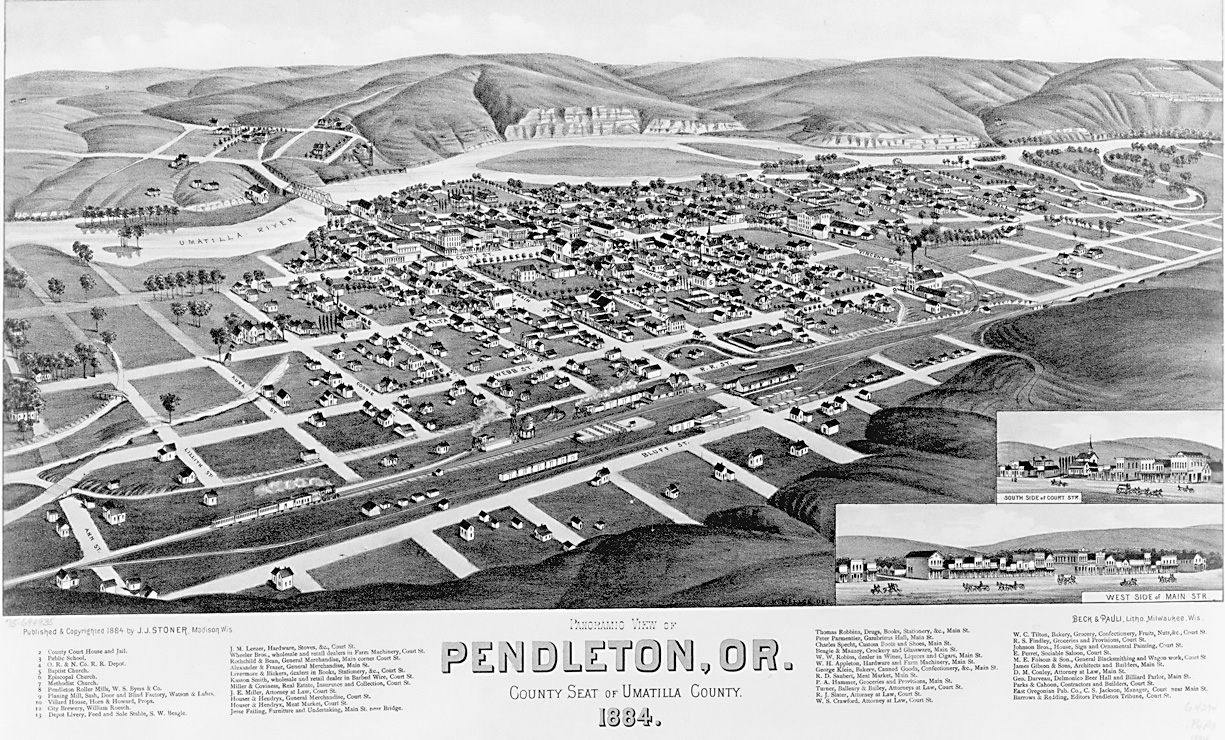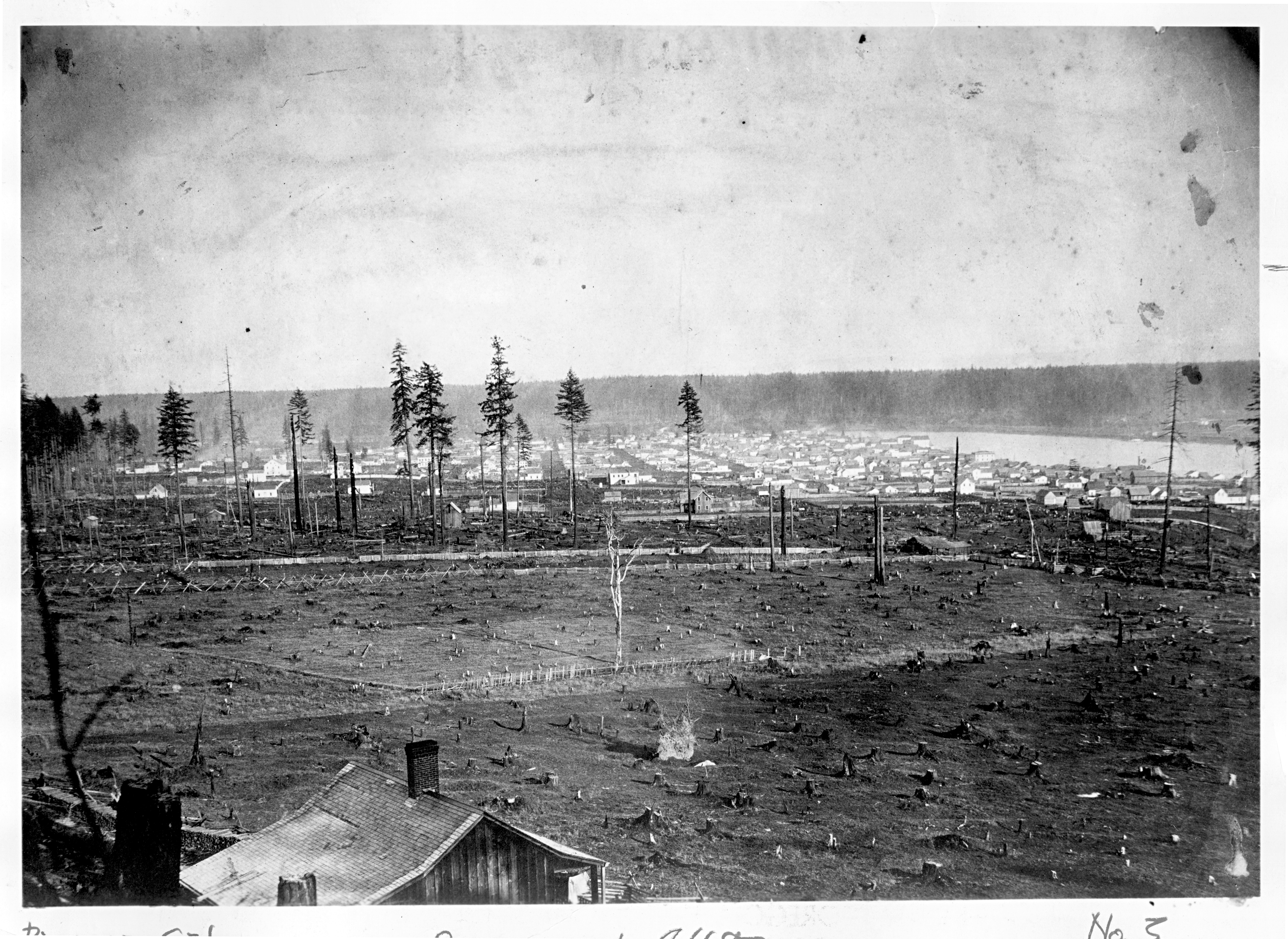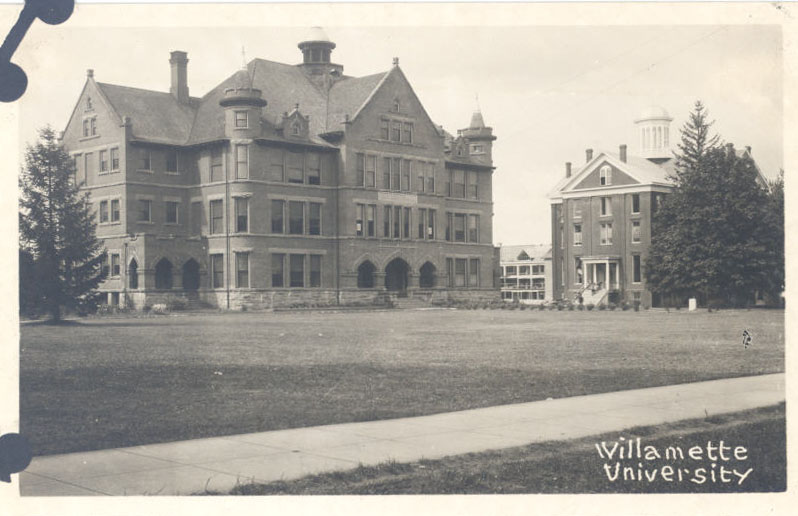Fred Lockley was a newspaper columnist, a rare book dealer, and the author of books on Oregon and Pacific Northwest history. He was born March 19, 1871, in Leavenworth, Kansas, to Elizabeth Metcalf Campbell and Frederic Lockley, a Civil War veteran and newspaper editor. Between 1872 and 1881, the family lived in Salt Lake City, Utah; Walla Walla, Washington; and Butte, Montana.
Lockley's father was an editor at the Butte Inter-Mountain, and young Fred became a carrier for the paper. When the family moved to Arkansas City, Kansas, where Lockley's father purchased the Arkansas City Traveler, Fred learned the printing trade as an office boy and type sorter. In 1888, he headed to Salem, Oregon, to work as a compositor on the Capital Journal.
Lockley attended Oregon Agricultural College in Corvallis in 1889-1890 and graduated from Willamette University with a degree in education in 1895. Two years later, he married Hope Gans; they had three children, only one of whom survived childhood.
After laboring for a year on a farm in Polk County, Lockley took a job at the Salem Statesman. As field editor for the weekly magazine, Pacific Homestead, he rode on horseback all over Oregon, usually staying overnight at the homes of people he met. Interested in their histories, he began writing about pioneers and pioneer life.
Lockley continued to move from job to job, working as an assistant to a government topographer, mapping what is now Glacier National Park, and as a mail carrier and clerk in the Salem post office. In 1900, he mined gold in Nome, helped establish the first free mail delivery in Alaska, and worked for the Nome Nugget. In 1902, at Hope's urging, the family moved to Pendleton, and he became the circulation manager and part-owner of the East Oregonian. Four years later, he sold his interest in the paper, and the family moved to Portland.
From 1905 to 1910, Lockley was general manager of The Pacific Monthly magazine. He left the magazine in 1913 to join the editorial staff of the Oregon Journal as a feature writer. In 1919, he began writing the column, "Observations and Impressions of The Journal Man." In 1917-1918, he served as a war correspondent in France for the Oregon Journal, the New York Herald, and the London Globe. Hope Lockley died in 1928, and Fred married Laura Simpson in 1930.
Lockley wrote many books—including Oregon Folks, Oregon's Yesterdays, Oregon Trail Blazers, and Oregon Outdoors—in addition to articles and stories for the American Magazine, Collier's, McClure's, Sunset, and other magazines.
After Lockley's death on October 15, 1958, Pendleton native Mike Helm worked with the hundreds of interviews and documents that Lockley had collected from Oregon pioneers in the 1920s and 1930s. Conversations with Pioneer Women (1981) and Conversations with Pioneer Men (1981, 1996) are a tribute to Lockley's dedication to Oregon history and a significant resource on early Oregon settlers.
-
![]()
Fred Lockley.
Image courtesty of the Oregon State Library
Related Entries
-
![Pendleton]()
Pendleton
Pendleton, a city of 17,107 in the 2020 census, sits in the foothills o…
-
![Portland]()
Portland
Portland, with a 2020 population of 652,503 within its city limits and …
-
![The Oregonian]()
The Oregonian
The Oregonian, the oldest newspaper in continuous production west of Sa…
-
![Willamette University]()
Willamette University
Willamette University, the oldest university in the West, was founded i…
Map This on the Oregon History WayFinder
The Oregon History Wayfinder is an interactive map that identifies significant places, people, and events in Oregon history.
Further Reading
"Guide to the Papers of Fred Lockley, 1839-1958." New York Historical Society. http://dlib.nyu.edu/findingaids/html/nyhs/lockley.html.
Lockley, Fred. History of the Columbia River Valley, From The Dalles to the Sea. Vol. 2. Chicago: S.J. Clarke Publishing Co., 1928.
Lockley, Fred. Oregon Folks. New York: Knickerbocker Press, 1927.





